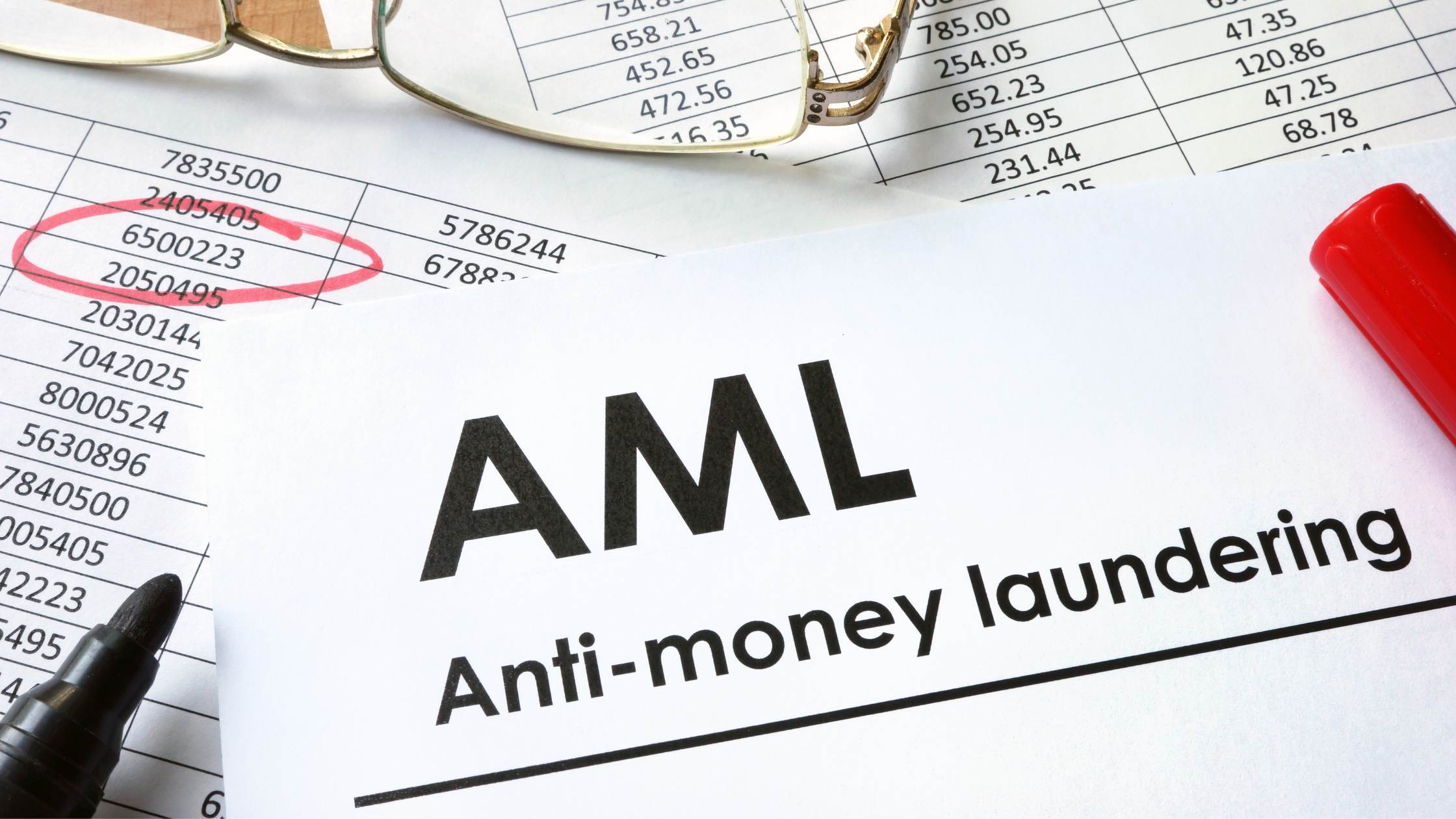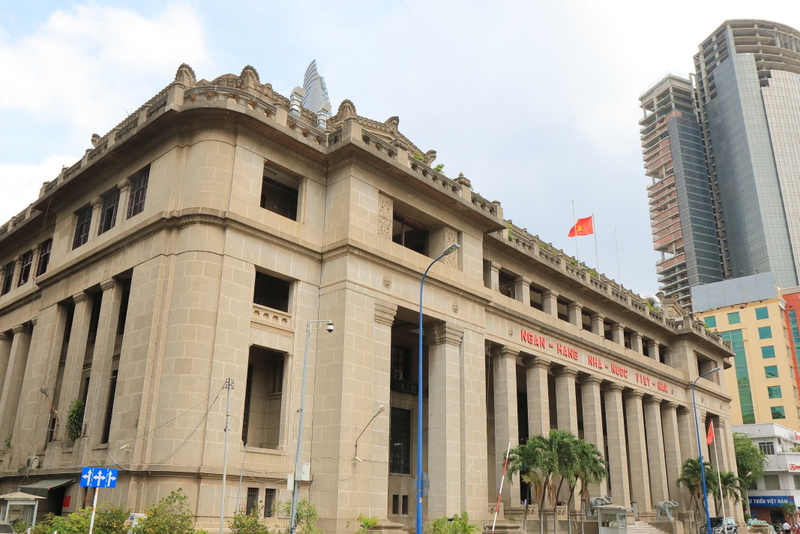
While Vietnam remains a predominantly cash-based economy, its legal frame work on anti-money laundering, according to the Asian Pacific Group on Money Laundering (APG)’s assessment in its Mutual Evaluation Report dated January 2022, is still incomprehensive and limited, which makes the country itself vulnerable to risks of money laundering. Pursuant to the report on national risk assessment on money laundering and terrorism financing conducted by the Vietnamese authority for the period of 2012-2017, the risk of money laundering in Vietnam is assessed at “medium high” (trung bình cao). Of which, while banking and underground remittance are the sectors where the money-laundering risks are assessed at “high” (cao) level, corruption and gambling are the crimes identified to have high money-laundering risks.
In an effort to mitigate money-laundering risks and further enhance the country’s capacity against money laundering, on 5 August 2022, the Vietnam Prime Minister issued Decision No. 941/QD-TTg on the national action plan on anti-money laundering, terrorism financing, and financing for proliferation of mass-destruction weapons. Based upon this plan, the Vietnam National Assembly adopted the Law on Anti-money Laundering (Law No. 14/2022/QH15) dated 15 November 2022 (“New AML Law”). The New AML Law takes effect from 01 March 2023 and replaces the Law on Anti-money Laundering 2012 (the “ 2012 AML Law”).
The guideline below is mainly aimed to provide readers with an overview of Vietnam’s regulation on anti-money laundering and salient points of the New AML Law in comparison with the old one.
1. What is money laundering?
The New AML Law defines “money laundering” as an act of an individual or an organization to legitimize the origin of property obtained from crime.
Notably, while the 2012 AML Law keeps silent on what the “property obtained from crime” is, under the New AML Law, it means any property directly or indirectly obtained from a criminal act and any income, benefit or profit derived from the property obtained from a criminal act.
2. Who will be subject to the governance of the New AML Law?
The New AML Law shall be applied to (i) the reporting entities (đối tượng báo cáo) as mentioned in detail below, including financial entities, companies and individuals conducting related non-financial businesses, (ii) Vietnamese individuals/entities, foreign individuals/entities and other international organizations transacting with the reporting entities and (iii) other organizations, individuals, and agencies pertaining to anti-money laundering.
3. What are the reporting entities? Which entities shall be considered as reporting entities in particular?
The reporting entities (or đối tượng báo cáo in Vietnamese) is a legal concept under the AML Law being used to refer to companies and individuals that have obligations to conduct measures against anti-money laundering and comply with other obligations as required by the AML Law (the “Reporting Entities”).
Acording to the New AML Law, the Reporting Entities are classified into two groups as below:
- Financial entities (or Tổ chức tài chính in Vietnamese): This group includes entities being licensed to conduct one or more of the following business activities: acceptance of deposit; lending; finance leasing; payment services; intermediary payment services; issuance of negotiable instruments; credit cards; debit cards; debit cards; transfer instruction; banking guarantees and financinal undertakings, provision of foreign exchange services and monetary instruments in the monetary market; services of securities brokerage, securities investment consultancy and underwriting in securities issues; management of investment capital portfolios; life insurances and money exchange services.
- Non-financial entities (or Tổ chức, cá nhân kinh doanh ngành nghề phi tài chính in Vietnamese): This group includes entities, individuals that conduct one or more of the following activities: prized gaming businesses, real estate businesses (except for real estate leasing and real estate consultancy), precious metals/stones dealers, accountant service, notary services, legal services of lawyers/law firms, services of establishing, managing and running an enterprise, provision of directorship and secretary services to a third party and legal arrangement services).
Compared to the 2012 AML Law, the concept of “Reporting Entities” under the New AML Law is regulated in a broader manner covering more business activities. Notably, having considered recent money laundering activities in the country, as well as the recommendations from the Financial Action Task Force (FATF), entities conducting interim payment services (dịch vụ trung gian thanh toán) are supplemented to the Reporting Entities under the New AML Law.
4. If an enterprise is classified as the Reporting Entity under the New AML, what are its statutory obligations?
The New AML Law requires an organization and/or individual being the Reporting Entity to (i) conduct measures of anti-money laundering and (ii) comply with other statutory obligations (e.g., reporting obligations). Accordingly, in terms of conducting measures against money laundering, subject to specific circumstances as required by law, the Reporting Entities must conduct, inter alia, the following measures:
- Customer due diligence (Nhận biết khách hàng) (a.k.a KYC);
- Assessment on money-laundering risks (Đánh giá rủi ro về rửa tiền);
- Building upon internal regulations on anti-money laundering (Xây dựng quy định nội bộ về phòng, chống rửa tiền);
- Reporting suspicious transactions (Báo cáo giao dịch đáng ngờ);
- Storing/recording information and documents (Lưu trữ thông tin, hồ sơ, tài liệu, báo cáo); and
- Applying provisional measures (Áp dụng các biện pháp tạm thời).
5. What does “customer due diligence” means? And under what circumstances must this measure be applied?
The customer due diligence (“CDD”) means the collection, updating, and verification of the identity of a customer, its beneficial owners, and the assigned person working as an agent of the customer (if any), as well as the information on the customer’s purpose and nature of the business relationship.
A financial institution must undertake CDD measures where (i) opening an account for or establishing a business relationship with a (new) customer, or (ii) conducting occasional transactions involving an amount equal to or above the statutory threshold or wire transfers without details of the name, address, bank account or transaction code of the sender, or (iii) it suspects money laundering, or (iv) it suspects the accuracy or adequacy of previously collected information.
The CDD measures shall also be applicable to non-financial businesses and professions under certain circumstances. For example, enterprises conducting real estate businesses are required to undertake CDD measures when they provide services of real estate trading for their customers.
Remarkably, the New AML Law allows the Reporting Entities to rely upon a third party to implement CDD measures provided that the third party satisfies all conditions set out in this Law. Nonetheless, the Reporting Entity remains ultimate responsibility for the collection, updating, and verification of the customer identification.
The customer’s information to be collected by the Reporting Entities under the CDD measures may include, amongst other things: name, date of birth, nationality, occupation, title, phone number, ID card or passport numbers, address (for customers being individuals); trading name, headquarter, tax code, phone number, website (if any), business sector, information of founders, legal representatives, directors/general director or chief account (for customers being organizations).
6. What is specific statutory requirement for money-laundering-risk assessment?
The New AML Law adds a new requirement that Reporting Entities must conduct the assessment of money laundering risks which shall be updated annually. The report on risk assessment (after being approved in accordance with internal rules of the reporting entity being an organization) must be reported to the State Bank of Vietnam (SBV) and other relevant state ministries or bodies within the timeline as required by law.
Based on this assessment, the Reporting Entities must elaborate and update their risk management process which contains provisions on classification of customers. Customers are classified as low risk, medium risk or high risk and each classification will be subject to different requirements for CDD measures, specifically: simplified CDD measures for low risk customers, CDD measures as specified in Article 9 of the New AML Law for medium risk customers, and enhanced CDD measures for high risk customers. The details on classification of customers will be provided by the State Bank of Vietnam (SBV).
The New AML Law also requires the SBV to preside over coordination with the relevant ministries to conduct the national assessment of money laundering risks every five (5) years but leaves the details for future regulations.
7. When and how the Reporting Entities must report to the competent authority about transactions?
Generally speaking, the New AML Law requires the Report Entities to report to the State Bank of Vietnam about transactions in the following key circumstances:
- Report on high value transactions: Similar to the 2012 AML Law, the New AML Law requires the Reporting Entities to report high value transactions (conducting in domestic or foreign cash) to the SBV. The value of transactions that must be reported will be stipulated by the Prime Minister. The current transaction-reporting threshold is VND 300million (approx. USD 12,800) under Decision 20/2013/QD-TTg dated 18 April 2013, which will likely be changed or updated soon upon the effectivity of the New AML.
- Reporting on suspicious transactions: The Reporting Entities must report a suspicious transaction to the SBV where: (i) the Reporting Entities know the transaction to be conducted at the request of the accused, defendant or convict in criminal proceedings and has a reasonable ground to suspect that the properties in the transaction owned or originated from properties owned or controlled by such person; or (ii) there are reasonable grounds to suspect that the properties in the transaction relate to money laundering by analysing suspicious features of the transaction.
Under the New AML Law, a transaction will be considered as suspicious if there exists, inter alia, either of the following features:
Generally speaking, the New AML Law requires the Report Entities to report to the State Bank of Vietnam about transactions in the following key circumstances:
- Report on high value transactions: Similar to the 2012 AML Law, the New AML Law requires the Reporting Entities to report high value transactions (conducting in domestic or foreign cash) to the SBV. The value of transactions that must be reported will be stipulated by the Prime Minister. The current transaction-reporting threshold is VND 300million (approx. USD 12,800) under Decision 20/2013/QD-TTg dated 18 April 2013, which will likely be changed or updated soon upon the effectivity of the New AML.
- Reporting on suspicious transactions: The Reporting Entities must report a suspicious transaction to the SBV where: (i) the Reporting Entities know the transaction to be conducted at the request of the accused, defendant or convict in criminal proceedings and has a reasonable ground to suspect that the properties in the transaction owned or originated from properties owned or controlled by such person; or (ii) there are reasonable grounds to suspect that the properties in the transaction relate to money laundering by analysing suspicious features of the transaction.
Under the New AML Law, a transaction will be considered as suspicious if there exists, inter alia, either of the following features:
- A customer refuses to provide information or provides inaccurate, incomplete and/or inconsistent customer identification information;
- A customer persuades the Reporting Entity not to report a transaction to a competent state body;
- The customer is unidentifiable on the basis of the information provide by such customer or the transaction involves an unidentifiable party; or
- An organization or individual participates in a transaction with a large amount of money which does not correspond with the income of nor relate to the business activities of such organization or individual.
Compared to 2012 AML Law, though the New AML Law generally does not change basic suspicious features of a transaction, it does amend suspicious features in the banking sector, life insurance business sector, and securities sector. For example, in the sector of securities, the capital contribution of a foreign investor residing in a country or territory with the high risks of money-laundering to establish securities investment fund or company in Vietnam will be considered as a feature triggering the report obligation of the Reporting Entity under the New AML Law. Suspicious features in the intermediary payment sector are added as well.
- A customer refuses to provide information or provides inaccurate, incomplete and/or inconsistent customer identification information;
- A customer persuades the Reporting Entity not to report a transaction to a competent state body;
- The customer is unidentifiable on the basis of the information provide by such customer or the transaction involves an unidentifiable party; or
- An organization or individual participates in a transaction with a large amount of money which does not correspond with the income of nor relate to the business activities of such organization or individual.
Compared to 2012 AML Law, though the New AML Law generally does not change basic suspicious features of a transaction, it does amend suspicious features in the banking sector, life insurance business sector, and securities sector. For example, in the sector of securities, the capital contribution of a foreign investor residing in a country or territory with the high risks of money-laundering to establish securities investment fund or company in Vietnam will be considered as a feature triggering the report obligation of the Reporting Entity under the New AML Law. Suspicious features in the intermediary payment sector are added as well.
8. What are statutory requirements applicable for the document recording of the Reporting Entities?
The Reporting Entities must archive customer identification files, the results of any analysis undertaken, and other files and information related to transactions subject to reporting requirement for at least 05 years after the business relationship has ended, the account is closed or the date of report (as the case may be). All reports on high value transactions, suspicious transactions, and transactions of electronic transfer of money must be archived for at least 05 years from the date of transaction.
9. What does “interim measure” mean? Under what circumstances will the reporting entities have to apply it?
Interim measures in the context of the AML Law refer to the measures to be applied by the Reporting Entity itself or at the request of the competent authorities on the temporary and urgent basis in cases as specified by law. Under the New AML Law, these measures include (i) postponement of transactions (trì hoãn giao dịch) and (ii) sealing of assets (niêm phong tài sản), freezing of assets or accounts (phong tỏa tài sản hoặc tài khoản) or seizing of assets (tạm giữ tài sản).
Under the New AML Law, the Reporting Entity must postpone a transaction in the following cases where: (i) it has a ground to suspect or discovers that the parties involved in such transaction are in the Black List (i.e., the list of organizations and individuals pertaining to terrorism or terrorism financing as made by the Ministry of Public Security or pertaining to proliferation or financing of mass destruction weapons made by the Ministry of National Defence), or has a reason to believe that the requested transaction relates to criminal activity or (ii) the competent State authority requires the Reporting Entity to postpone the transaction.
In these cases, the period of postponement must not exceed 03 working days from the date of application of this measure and the Reporting Entity must report promptly to the competent authorities and the SBV.
The Reporting Entities must also freeze accounts and apply measures to seal, freeze or seize properties upon the request of the competent State authorities.
10. What are the legal consequences if the Reporting Entities fail to comply with statutory requirements on anti-money laundering?
Subject to specific violations against regulations on anti-money laundering, the violating entity or individual may be subject to criminal or administrative sanctions.
In terms of administrative sanction, under Decree 88/2019/ND-CP (as amended by Decree 143/2021/ND-CP), violations against regulations on anti-money laundering may be subject to administrative fines and other supplemental remedial measures. The statutory fines will vary (i) from VND 80 million (approx. USD 3,410) to VND 500 million (approx. USD 21,317) for wrongdoers being individuals and (ii) from VND 160 million (approx. USD 6,820) to VND 1 billion (approx. USD 42,634) for those being organizations.
As for money-laundering violations constituting a crime under the 2015 Criminal Code (as amended), while an offender being an individual can be imprisoned from 1 to 10 years and applied other supplemental sanctions (e.g. fine of up to VND 100 million or preventing from holding a position, conducting a business from 1 to 5 years), a fine from VND 1 billion (approx. USD 42,634) to VND 20 billion (approx. USD 852,696) and a sanction banning from operating in certain areas or raising capital up to 3 years shall be applied for an offender being a commercial entity (or pháp nhân thương mại in Vietnam).
11. Which specific state agency will be responsible for reporting, preventing, and fighting against money-laundering activities in Vietnam?
Under the New AML Law, the below are key state agencies in charge of preventing and fighting against money laundering in Vietnam:
- State Bank of Vietnam (SBV) is mainly responsible to the Government for conducting state management of prevention and fight against money laundering. Notably, the Department of Preventing and Fighting against Money Laundering (Cục phòng Chống rửa tiền), a department under the SBV play a very important role in building policies on anti-money laundering, as well as enforcing such regulations;
- Ministry of Public Security is mainly responsible for collecting, receiving, and investigating information of money laundering-related crimes;
- The People’s Procuracy and the People’s Court coordinate with other agencies in the investigation, prosecution, and resolution of money laundering crimes;
- Other relevant ministries (e.g., Ministry of Finance, Ministry of Construction and so on) are responsible for coordinating with the SBV and relevant state bodies in conducting statement management on anti-money laundering in areas under their respective management; and
- People’s Committees at all levels are responsible for conducting legal training on anti-money laundering in the province, coordinating with state authorities to implement policies, strategies, and plans to prevent and fight money laundering.
12. How is the current practice on money-laundering in Vietnam?
As a result of the fights against corruption conducted by Vietnam Communist Party, the recent years have witnessed a rapid increase on the number of criminal cases having signs of money laundering, reaching 11,000 cases per year on average according to the public media.
The statistics from the SBV shows that from 2013 to September 2020, the Department on Anti-Money Laundering (Cục phòng Chống rửa tiền) has analysed and processed more than 10,000 reports on suspicious transactions and transferred 875 cases pertaining to 5,614 transactions to investigation and competent authorities.1
As per the statistics of the Supreme People’s Procuracy, from 2013 to 2019, the procuracy prosecuted nearly 10,000 cases on economic management, corruption and position abuse-related crimes which all showed signs of money laundering. Of which, two following major cases can be mentioned:
- Case of Alibaba Real Estate JSC2: According to the indictment of the Ho Chi Minh Procuracy, Nguyen Thai Luyen, the chairman of Alibaba Real Estate JSC, (“Alibaba”) has created (i) 22 specicial purpose vehicles under the ownership of Alibaba and (ii) 58 “ghost” real estate projects to sell to customers. Luyen and his companies collected and appropriated nearly VND 2.4 trillion (approx. USD 102 million) from 4,560 customers in total. At that time, the Chairman of Alibaba organised for a number of his family members to open bank accounts. The Chairman authorised the transfer of VND 13 billion (approx. USD 568,000) from the company to the bank accounts which belonged to investors to the accounts of family members. The funds were then used to purchase property and cash withdrawals.
The chairman has been charged with fraud and sentenced to life imprisonment. Vo Thi Thanh Mai and Ngo Thai Luc (Luyen’s younger brother) were both sentenced for 30 and 27 years of imprisonment for both crimes of fraud and money laundering. The court also forced HD Bank and Vo Thi Thanh Mai to re-submit the amounts of VND 13 billion.
- Phan Sao Nam Case3: According to the indictment, from 2014, Phan Sao Nam had conspired with Nguyen Van Duong and several others to develop and operate the online gambling system, which was connected to a number of intermediary payment companies, allowing players to gamble virtual money on card games and convert their winnings to real money. The online gambling system was associated with its own virtual currency bought and sold by a network of agents.
An investigation into the online gambling ring was initiated. The investigation uncovered almost 43 million gambling accounts and bets worth VND 9.8 trillion (approx. USD 418 million). Phan Sao Nam and Nguyen Van Duong made over VND 3 trillion (approx. USD 127 million) in profit.
To conceal the proceeds of the crime, Phan Sao Nam and his co-conspirators generated fraudulent contracts and invoices, invested in real estate and construction projects, cars, and gold, and transferred money overseas and to relatives, who then returned the money.
105 persons were prosecuted for various offences, including money laundering. Nguyen Van Duong was sentenced to 5 years imprisonment for money laundering, while Phan Sao Nam and another individual received a 3-year sentence (one sentence was suspended). The court restrained VND 1.1 trillion (approx. USD 48.3 million), fined the defendants VND 2.3 trillion (approx. USD 97.5 million) and recovered approximately VND 506 billion (approx. USD 22 million).
1https://vietnamlawmagazine.vn/money-laundering-crimes-on-the-rise-situation-and-solutions-48241.html
2https://plo.vn/toan-canh-vu-alibaba-sau-gan-hai-tuan-xet-xu-post713644.html; https://thuvienphapluat.vn/banan/tin-tuc/noi-dung-ban-an-hinh-su-so-tham-vu-an-alibaba-7611
3https://vir.com.vn/5-10-years-of-imprisonment-for-masterminds-of-online-gambling-ring-64265.html; https://vnexpress.net/12-ngay-thu-moi-tay-nghin-ty-dong-cat-giau-cua-phan-sao-nam-3877560.html
















 Ngoc Anh Bui
Ngoc Anh Bui Tung Ngo
Tung Ngo Anh Dang
Anh Dang Phong Tran
Phong Tran Linh D. Nguyen
Linh D. Nguyen Quynh Pham
Quynh Pham Trung Vu
Trung Vu Hien Truc Nguyen
Hien Truc Nguyen Hung Q. Nguyen
Hung Q. Nguyen Hao Nguyen
Hao Nguyen Duyen Ha Vo
Duyen Ha Vo Hien Tran
Hien Tran Ha H. Luu
Ha H. Luu Ngoc Luong Trinh
Ngoc Luong Trinh







